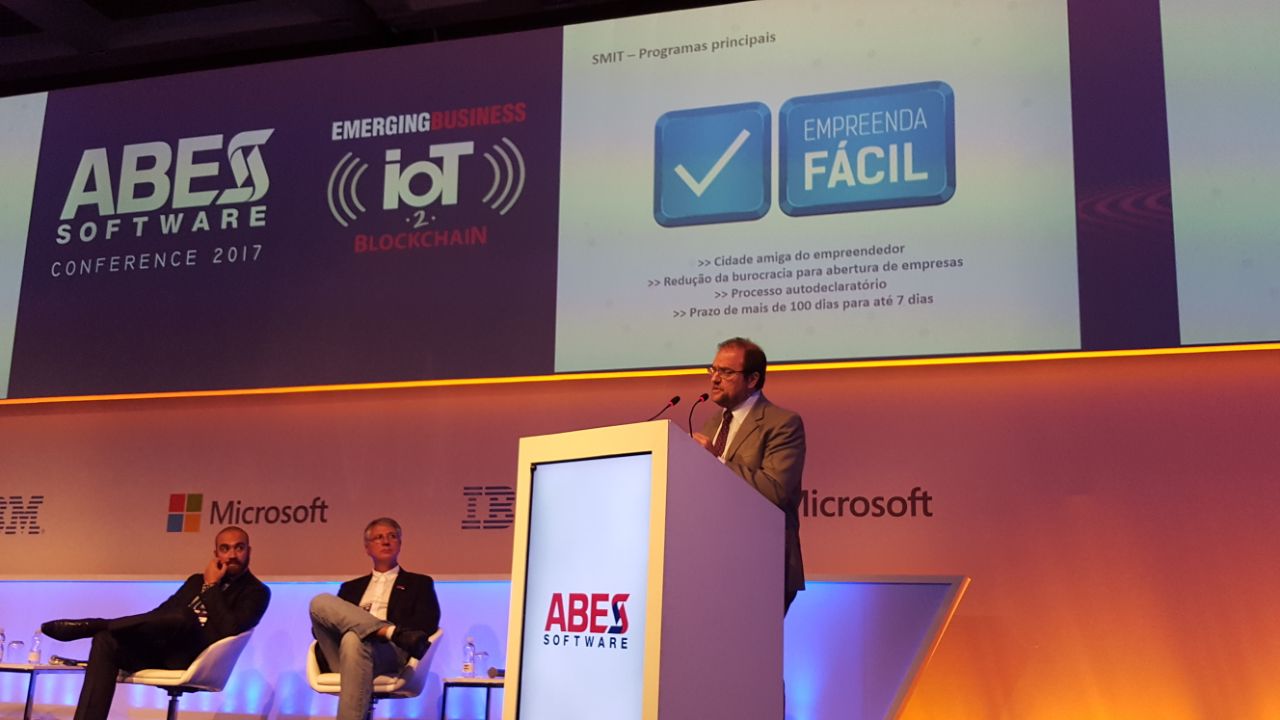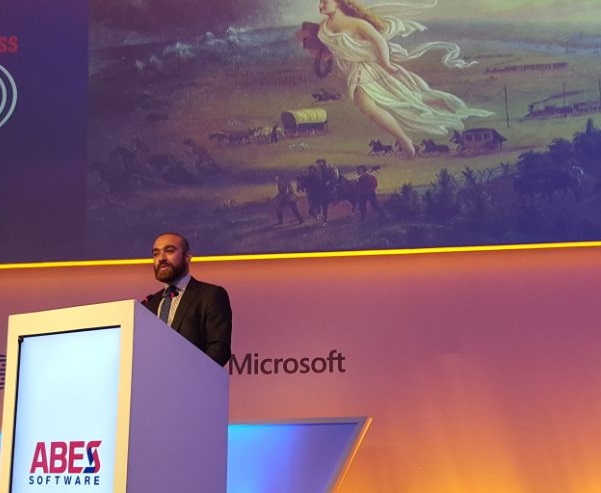
Sérgio Alves, coordinator of Information Technology Policy, at the Ministry of Science, Technology, Innovation and Communications (MCTIC), and Daniel Annenberg, secretary of Innovation and Technology, at the City of São Paulo, had a surprise company in the first panel of the ABES Software Conference : “Isabela”, the female version of Watson that speaks Portuguese, IBM's artificial intelligence platform for business. It provided participants with a live experience of interaction with a cognitive computing system during the debate on digital government, one of the central points of the digital transformation process in Brazil and in the world.
“Isabela” interacted with the moderator, Lauro de Lauro, manager and coordinator of the Committee on SaaS, ABES, asked questions to the speakers and explained that she learns, reasons and gets smarter as she receives new data and interacts with people and she said she was curious to know what the Brazilian government has been doing to advance these new technologies.
Prepared by the IBM team to participate in the event, "Isabela" showed that she "studied" the topic and explained that governments around the world are looking to the digital revolution, implementing initiatives to rationalize the management and use of public resources, increase productivity , improve human resource management and, above all, improve communication, interaction with citizens and service provision.
“To talk about digital government, nothing is more pertinent than bringing the personification of the digital here to speak, represented by 'Isabela'”, announced Lauro.

digital government
After the surprise, Sérgio Alves highlighted the three main federal government programs focused on digital transformation: the Brazilian Digital Strategy, which is open to public consultation until September 20; the National Internet of Things Plan, which is based on the diagnosis of IoT in Brazil, definition of priority sectors and the formulation of actions and recommendations to speed up the implementation of technology in the country; and the Start-UP Brasil Program, which has open enrollment to select up to 50 projects from technology-based start-up companies. Each company will receive R$ 200 thousand
“We are thinking about structure, proposing digital action in the government, focusing on security and trust in the use of ICTs, working on research, development and innovation, in addition to encouraging the adoption of the digital economy”, he emphasized. See the presentation here.
.jpg)
São Paulo City Hall
Simplification of processes and reduction of bureaucracy, decentralization of municipal administration services, integration of the transversal form of the various municipal bodies and promotion of electronic services, streamlining procedures and combating irregularities. These are the pillars of the São Paulo City Hall Innovation Department, according to Daniel Annenberg, the secretary of the folder that was created under the new municipal administration.
The secretary also highlighted the results of the Empreendeda Fácil program. “With the self-declaration process, we are going to reduce the time to start a company from another 100 days to just seven days and create an entrepreneur-friendly city", he promised. “Technology is the means to simplify and improve the public machine and, above all, to offer quality of life for everyone”, he said. He mentioned other ongoing activities, such as the extension of the Wi Fi network to more squares and public bodies and the creation of SP Descomplica, which will be service centers and service provision to the population, similar to the state Poupatempo. Check the presentation here.
About Watson
Watson is a cognitive computing system that learns on a large scale, reasons according to purposes, and interacts with humans in a natural way. Artificial intelligence is one of the technologies built into Watson. Watson's food is data and it works more like the reasoning of human beings (think, reason and learn).
Today, he is in the fields of healthcare, finance, law, retail and education and Watson continually learns, gaining in value and knowledge over time and from his interactions with his environment. Worldwide, more than 80,000 developers are already using Watson cloud services and 500 startups have built applications based on these solutions.
IBM's business model for Watson is based on the concept of Economy of APIs (acronym for Application Programming Interfaces), when products and services connected to the internet are available to business partners, customers, and other extras in the ecosystem, for the development of applications. This makes cutting-edge technology more accessible and democratized. The advantage for companies is having greater speed and agility in the development and implementation of new solutions.
The evolution of cognitive computing is moving towards getting closer and closer to the way humans communicate with each other and developing "senses" that expand the ability to understand the environment around them, such as sight, smell, hearing, touch, etc. . This all happens through sensors. The ability to reason and generate hypotheses of intelligent systems is also expected to evolve to help us solve increasingly complex human problems.












